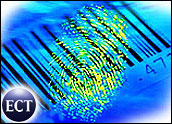
Last week, Germany’s upper house of Parliament, The Bundesrat, approved a bill to deploy passports containing biometric data, and the government is planning to issue the new passports this fall, clearing the way for German citizens to continue to come to the U.S. without a visa.
A resolution passed by the chamber said that the reason for embracing the new technology was “allowing the Federal Republic of Germany to continue to participate in the visa waiver program of the United States.”
Technical ‘Maturity’ Questioned
Nonetheless, the same resolution claims that German state governments have still not had time to “verify the technical maturity of the project.”
The “ePass” passport is slated to use a semiconductor that contains a digital photo of the traveler’s face, and, within two years, electronic copies of the traveler’s fingerprints will also be held on the chips.
“The criticism focuses on the use of RFID technology to store data on passports, concerns about the reliability of biometric procedures and the planned encryption, serious differences between the data protection standards of security authorities worldwide, the lack of involvement of the German Bundestag in the decisions made, and the lack of clarity about how the biometric data stored on the passports will be used,” the German Association for Data Protection said in a statement, critical of the legislation.
According to the resolution in the German Parliament, technical objections will probably be overcome shortly. “The technical processes required for the introduction of biometrically enhanced passports have progressed to such a stage of maturity that the issuing of the passports as a routine operation can commence on November 1, 2005 without there being a threat of security loopholes,” said the resolution approving the Second Regulation on the Change of Passport Legislation-related Rules, or, in the German, Zweite Verordnung zur Anderung passrechtlichter Vorschriften.
Domestic Angle Too
Interestingly, the Germans, though ostensibly creating the new passports for international travelers, also appear to have domestic reasons behind their policy. “Today’s resolution is an important step towards the implementation of major advances in biometrics for domestic security, said Germany’s minister of the interior, Otto Schily, who first proposed the project in June.
German airline Lufthansa said it hopes to introduce digital fingerprinting and smart cards as early as next year to help speed up check-in procedures.
Boarding passes are to be customized with the passenger’s thumb print “if possible as early as next year,” the company said in a statement.
Laboratory testing of the system, involving Lufthansa’s own employees, began last week.
The results of the test would then be analyzed.
US Plan Under Way
A similar plan is under development in the U.S. These smart-cards, which contain wireless chips, will be inserted by the U.S. State Department into all new American passports starting later this year. They will contain up to 64 bits of memory, storing each traveler’s name, date of birth, city of origin and other identifying information — including a digital image.
Major manufacturers such as Philips Semiconductors, Symbol Technologies, On Track Innovations and others have entered the smart-card fray.
The technologies being contemplated are similar in function to radio frequency identification devices, or RFIDs. There are, however, differences.
“These are passive tags,” said Dave Engberg, chief technology officer at CoreStreet, a technology developer in Cambridge, Mass. “That means they don’t have a power source in them. All the power comes from the induction of the magnetic field generated by the device that reads the chips.”
The smart-cards can’t transmit data, like the RFIDs.
Another distinct difference, said Manuel Albers, director of business development at Philips Semiconductors in Foxboro, Mass., is that “the primary driver of RFID [technology] has been mainstream products — not contactless smart-cards.”
Privacy Issues
Backers are quick to note the differences between the smart-cards and RFID chips because some regard the technologies as essentially the same and they have raised concerns about potential misuses of RFID — including electronic eavesdropping and ID theft.
Privacy rights groups such as the American Civil Liberties Union have taken this position.
“Even while the U.S. government pushed for these new, supercharged identity documents, it blocked privacy-enhancing security measures that would have protected citizens against identity theft, terrorism and surveillance, acting over the objections of security experts and other nations,” the ACLU said in a statement.
As a result, Homeland Security and other agencies tend to emphasize the term “smart-card” and avoid “RFID.”
Critics are concerned the wireless technology used in the smart-cards could make it easy for thieves to prey on travelers by outfitting themselves with portable scanners and electronically picking the pockets of those they target.
Concerns Unfounded?
But the Germans say that those concerns are unwarranted.
The smart-cards contain a digital signature algorithm — a mathematical formula — that makes it difficult to counterfeit other cards using the data from the original card.
The card readers have a range of about 40 inches (100 centimeters) and their efficiency already has been field tested. The government of Israel is a big proponent of the technology, and has hired On Track Innovations, a maker of contactless tags, as a primary contractor.
The Germans say that passengers who board airplanes using the smart passports can ask that once they are on board, the electronic repository of names of passengers be deleted. That will safeguard privacy, according to Lufthansa.

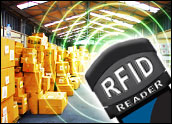
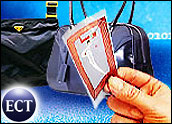
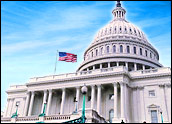
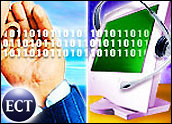
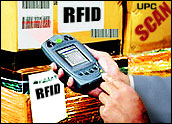

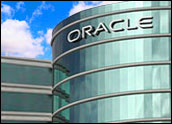
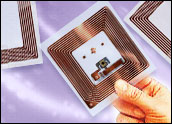
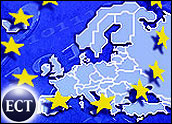

































The Technology has existed for over 10 Years,
Governments and Banks have been slow to Implement.
Do not Confuse Contact Less Smart Cards with RFID, but they are closely related.
Soon you will not want to leave home without your Multiple Application Smart Card to get on a Train or a Bus, Park your Car, Loan a Book from the Library, Access Computer at work or university.
Uncle Sam, Your Big Brother.